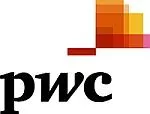- in Africa
Background
On 14 April 2021, the Ministry of Interior (MOI) held its 2nd stakeholders' meeting on expatriate quota matters. This was hosted by the Citizenship and Business Department of the MOI which has the mandate to enforce immigration laws as it relates to the issuance of business permits and Expatriate Quota (EQ) positions.
The meeting sought to obtain stakeholder input on the revised draft handbook on expatriate quota administration and challenges experienced by the public. Attendees deliberated on current practices and proposed changes in the draft handbook with options available for receiving further input. Highlights are below.
Current Practices
- Business permit: Business permit is granted to only wholly foreign or joint venture companies with a minimum share capital of N10 million to enable them commence business in the country.
- EQ duration: The grant for expatriate quota position(s) is for a period of three (3) years initially and is renewable biennially for two consecutive times within a lifespan of ten (10) years.
- Understudies to expatriates: Two Nigerian with minimum qualifications of HND should understudy each Expatriate Quota Position (EQP)
- Specialized industries: The aviation and energy industries must obtain recommendations from their regulators ahead of the MOI grant or renewal of EQPs.
- Exclusions: Professions such as accounting, human resources management, marketing/sales, teaching, artisans are not allowed EQPs given the availability of local talent.
- Penalties: Stiff penalties in the Immigration Act are reiterated for failure to renew EQs, failure to engage Nigerian employees to understudy expatriates and falsification of information in the monthly returns.
Proposed Changes
- Increase paid up capital for business permits: This will apply to only wholly foreign or joint venture companies in need of business permit to commence business in Nigeria.
- Reduced EQ lifespan: The grant for EQPs could be for a period of three (3) years initially and could be renewable biennially for two consecutive times within a lifespan of seven (7) years.
- Exclusions: Professions under the exempt list could be granted EQP if an exchange programme can be justified. Additionally, for artisans, the grant is subject to further consideration by the various sectors.
- Tax compliance: Corporate tax clearance certificate to be a requirement for obtaining permanent until reviewed quota. This practice has started but is yet to be published.
- Security clearance report from the Department of State Security Service (DSS) would be required for grants relating to NGOs and religious bodies.
- Increased collaboration: Increased collaboration with ministries, departments and agencies
- Not for profit organisations: Special considerations to be included with guidance from relevant stakeholders.
- Online presence and full digitalization: Online verification process to be communicated in the handbook. Full automation of the entire process on the portal via www.ectibiz.interior.gov.ng
Takeaway
The MOI's involvement of a wider stakeholder group is commendable. In the final stages prior to publishing the handbook, it is important that the emerging rules/processes do not make Nigeria less competitive in the ease of doing business ranking.
It is expected that the final handbook will be an easy reference for applicants and provide clarifications on existing processes. This has been done in compliance with the Executive Order One of 2017 on the promotion of transparency in the business environment. Section 112 of the Immigration Act also provides that the Minister can issue regulations for the administration of the Act. We expect these will be issued to provide a legal framework for the proposed changes to the extent allowed by the Act.
Affected individuals and employers are advised to stay abreast and leverage relevant platforms to contribute to the Handbook review process to ensure that existing challenges are addressed.
The content of this article is intended to provide a general guide to the subject matter. Specialist advice should be sought about your specific circumstances.



